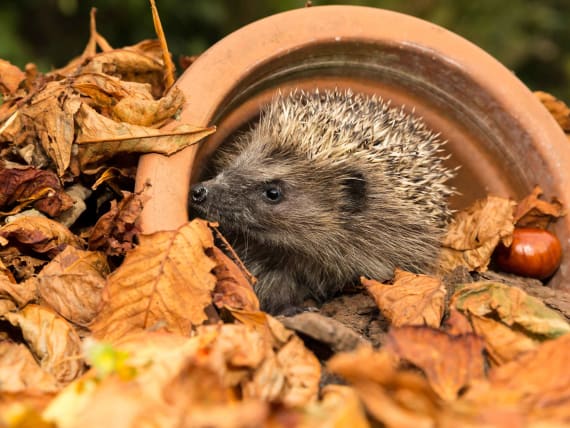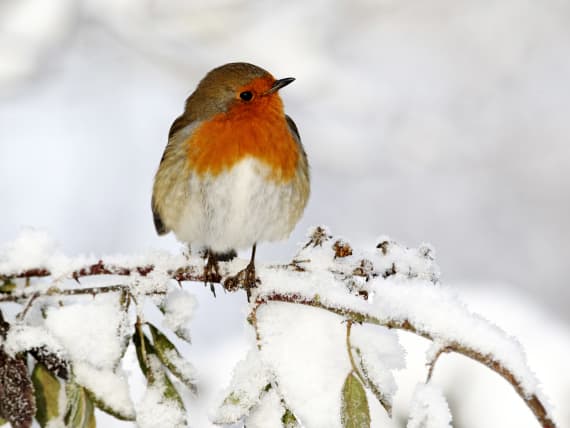Frequent search terms

- COMPO
- Guide
- Plant Care
- Basics
- Organic gardening
- How to help beneficial insects in the cold season
How to help beneficial insects in the cold season
When it gets colder, it is often difficult for many garden inhabitants to find enough food and shelter. Flowers have already bloomed and temperatures drop, causing the ground to freeze. It is important that beneficial insects are protected in order to maintain the balance between beneficial insects and pests in your garden. In doing so, you will indirectly reduce the number of pests which can otherwise start spreading in the spring and attacking your plants.

Offering beneficial insects foliage protection
The simplest frost protection for beneficial insects is an unspoilt and messy garden. Foliage can be spread on the beds and under bushes. This stops the ground from freezing too quickly and earthworms are protected from the cold deep in the soil. This way, ground beetles, which feed off potato beetles, caterpillars and snail eggs, have a better chance of survival.
If you cut your hedges in the autumn and haven't yet thrown away the cuttings, you should stack them for hedgehogs, toads and spiders and give the animals an option for getting through the winter. Alternatively, they also welcome shelter in the form of an empty flowerpot. Helping hedgehogs also directly benefits your garden, as hedgehogs mainly eat snails, which tend to attack flowers and vegetables.
Leave perennials alone
If you don't start pruning perennials until the spring, birds will still find food in the flower heads. What's more, the cocoons and eggs of butterflies can develop very well in the tall stems. Berries from blackthorn, seaberry, hawthorn or guelder rose shrubs are very popular among birds.
Bees and bumble bees also need a home: There would be no flowers, fruit or vegetables without them. With that in mind, it's a good idea to buy a bee and insect hotel or build one yourself and put it in the garden. Animals can also use them as a place of refuge.

Feeding birds
In Germany, feeding birds with seeds or fat balls is already part and parcel of the winter season when it becomes more difficult for them to find food. Birds that don't fly south tend to return to our gardens again and again. A distinction is made between granivores (finches, sparrows and yellowhammers) and soft-billed birds (robins, tits, dunnocks, blackbirds).

Instructions
Make your own bird food
As an alternative to buying bird feed, you can make a mixture containing bird feed and fat. To do this, you need coconut oil, clarified butter or beef tallow. Cereal grains, sunflower seeds, hemp seeds and chopped nuts are ideal for granivores. Soft-billed birds prefer oats, bran, raisins and berries.
Simply put in cups, heat up the fat and add to the cup along with the granular mixture. Then attach a tie to hang it up with. Once it has cooled, separate carefully, remove the baking paper and hang up outside.

Nuts and seeds for squirrels
Squirrels also appreciate some extra nutrition in the winter! Special, robust automatic feeders are great for this, as they can be very persistent or even brutal when it comes to food. They are filled with nuts such as walnuts, hazelnuts, seeds, beechnuts, mushrooms or chestnuts. Perhaps you even have some space for a hazel bush or berry bushes in your garden? If so, you ought to share your harvest, but ensure that the rodents have a long-term, separate supply.


